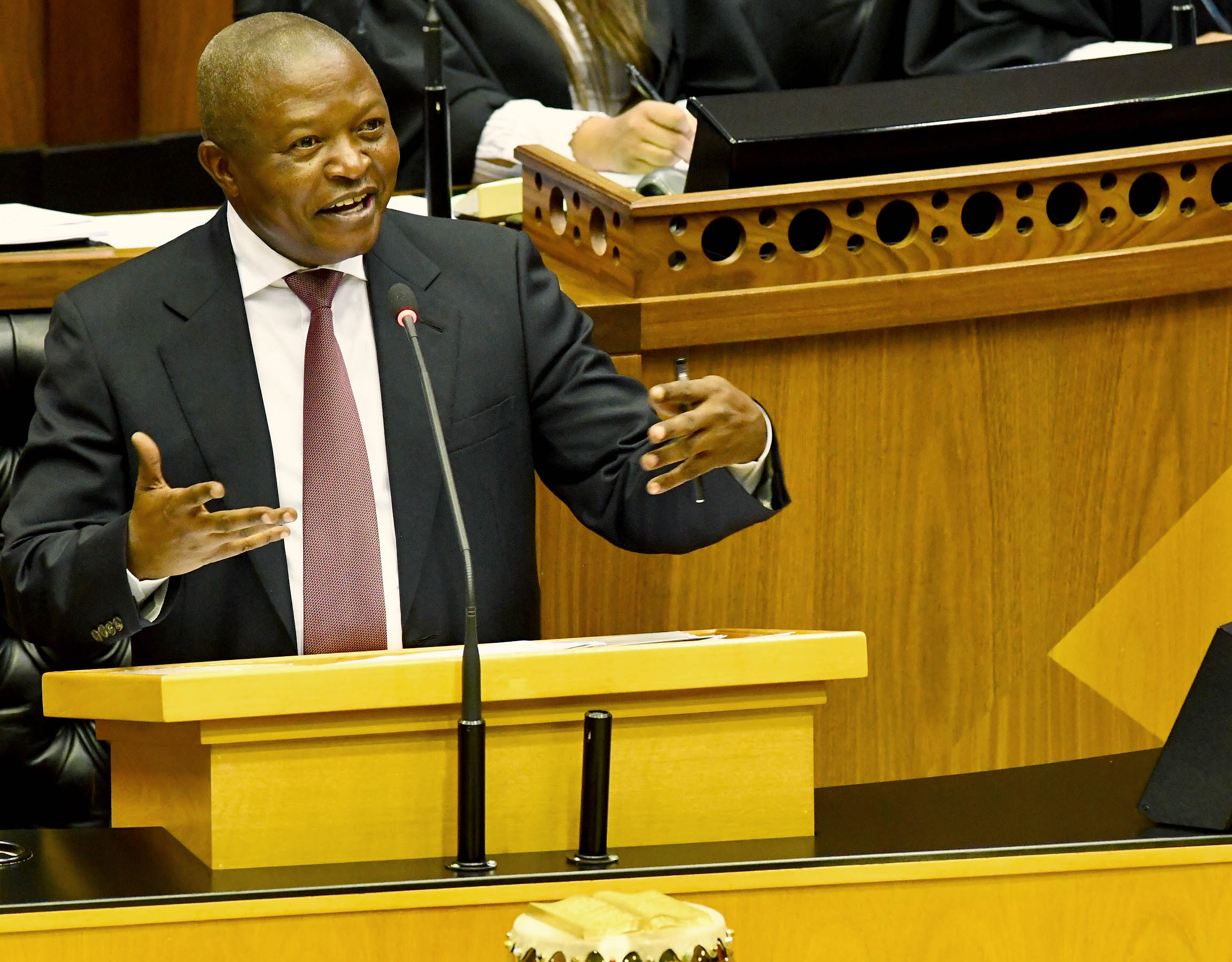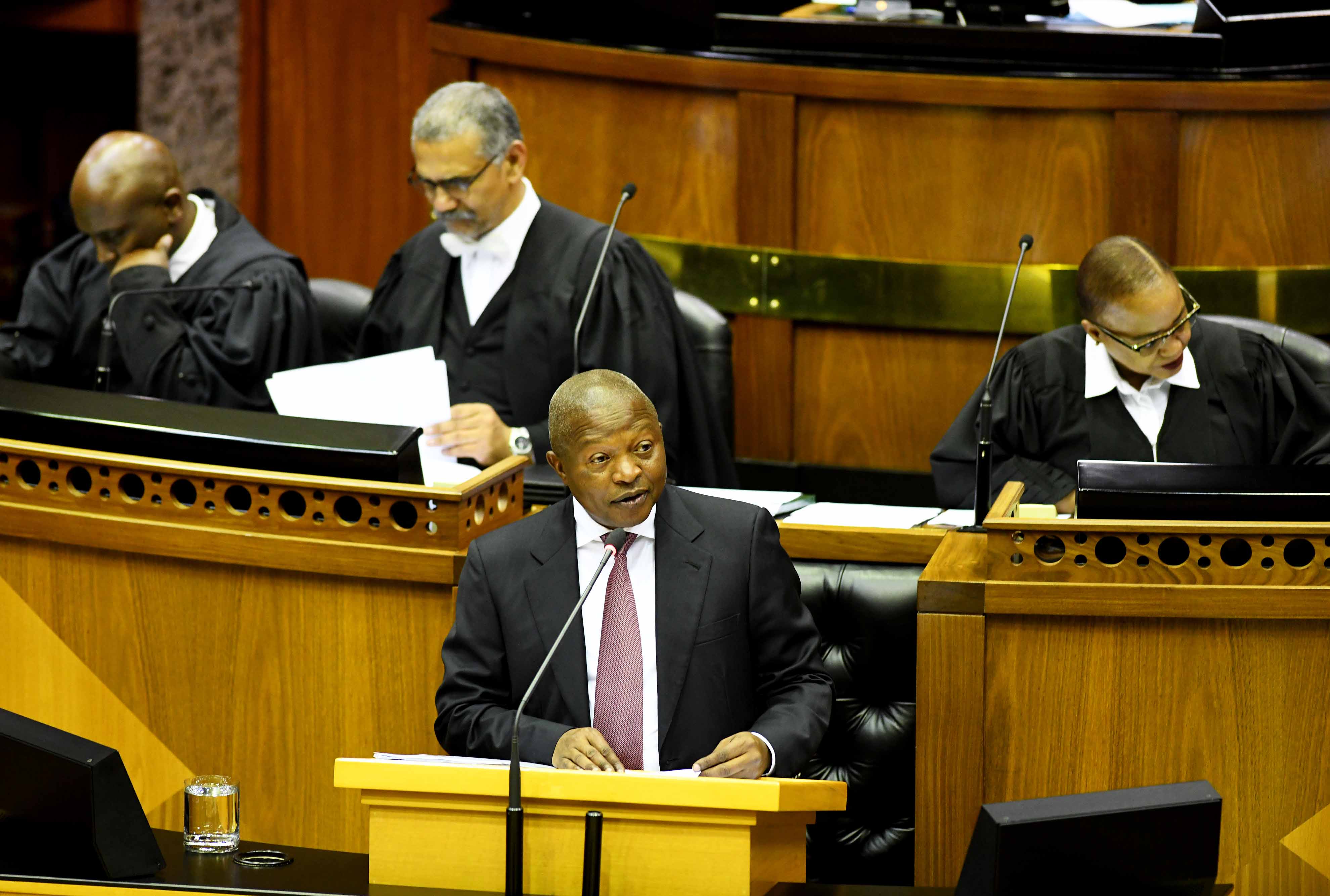Deputy President David Mabuza says government is piloting a new plan that has been designed to help struggling municipalities collect revenue due to them.
The Deputy President was fielding oral questions in the National Assembly Thursday.
ANC MP Dikeledi Direko had asked him to unpack what mechanisms are in place to improve municipal revenue collection plans.
“As part of the package of integrated support to improve the performance of municipalities, the national and provincial departments of CoGTA [Cooperative Governance and Traditional Affairs], National Treasury [and] provincial treasuries are supporting municipalities in the area of revenue collection to ensure that that municipalities are able to meet their service delivery obligation.“

“I am advised that to date, the Department of Cooperative Governance and Traditional Affairs has piloted and simplified a revenue plan in 42 selected municipalities, which is aimed at enhancing the municipal revenue management and debt collection systems in local government.“
The Deputy President said the successful implementation of the revenue plan will result in improved revenue management; reduced municipal consumer debt and the protection of municipal revenue.
“Progress on these municipalities is closely monitored by CoGTA as well as National Treasury,” Mabuza said.
“The objective of a simplified revenue plan is to assist municipalities to review and improve the generic replicable model in the revenue plan.”
He also said that targeted support is being provided to distressed municipalities to ensure that critical areas of revenue enhancement are strengthened and institutionalised.
Some of the key measures include:
- Ensuring revenue policies are in place in some of these municipalities, ensuring that clear credit control policies are implemented;
- Putting in place accurate and credible billing systems;
- Ensuring that everyone who should be paying is actually paying property rates and services;
- Monitoring of debtor accounts to ensure that those who must pay meet their obligation on time; and
- Implementing effective control systems, prevent revenue leakages, wastages and corrupt practices that depletes the money that has been already collected.
“With these interventions in place, we are certain that there will be improvements on the integrated development and the delivery of services within our municipalities,” he said.
Meanwhile, the Inter-Ministerial Committee on Service Delivery at district level is an important institutional mechanism to coordinate government’s intervention, to support all municipalities with service delivery bottlenecks.

The ongoing work the Inter-Ministerial Committee is seized with constitutes the core component of the President’s Coordinating Council agenda, focusing on providing integrated and holistic support to all municipalities
Where challenges are identified, Deputy President Mabuza said, the IMC has a responsibility to ensure that rapid intervention plans are developed and implemented within the framework of the district-based delivery model that government adopted.
“The new model calls for a better alignment of infrastructure plans, joined up implementation of sector plans as well as an effective and efficient inter-governmental system to deploy limited fiscal resources for better impact on the ground,” he said.
– SAnews.gov.za
